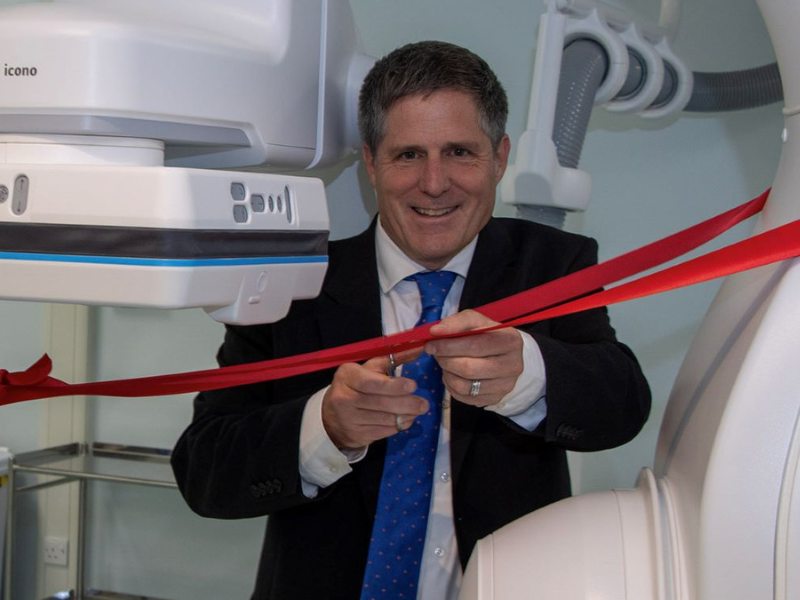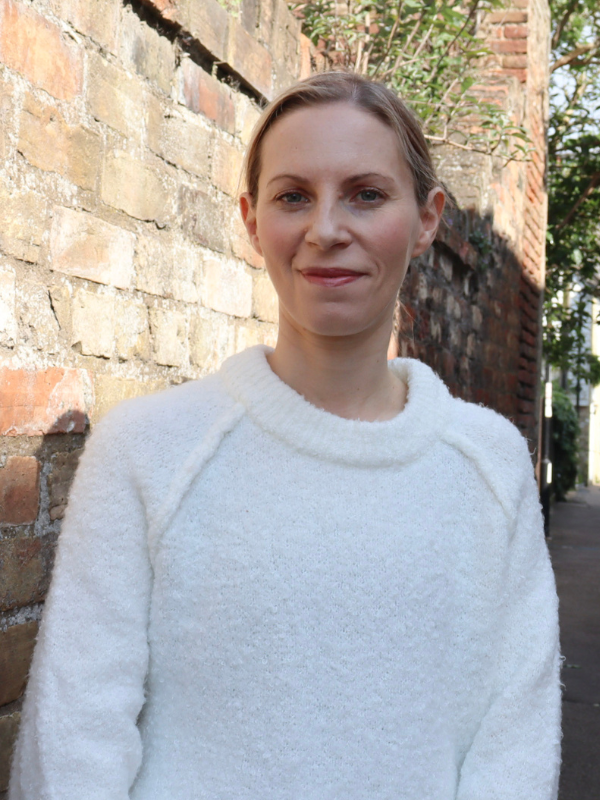Local MP Anthony Browne joined patients and staff at Addenbrooke's today, to celebrate the expansion of its specialist stroke services.

The second bi-plane angiogram suite will allow Cambridge University Hospitals NHS Foundation Trust (CUH) to provide mechanical thrombectomy treatment to more stroke patients in the eastern region.
Performing mechanical thrombectomy in CUH will allow patients in our region to be treated much sooner, which has been shown to reduce disability.
Dr Yogish Joshi
The bi-plane angiogram machine allows medics to see a 360 degree image of what’s happening inside the brain, so they can guide a specially-designed device through a catheter to remove the clot and restore blood flow.
For the one in ten stroke patients who are suitable for this treatment, it significantly reduces the chance of disabilities such as paralysis, and problems with speech and language.
The expansion of the service includes the recruitment and training of two new interventional neuro-radiology consultants and other support staff.
The celebration event was attended by Wendy Horrocks, a Pilates teacher from St Ives, and fellow stroke patient Brian Cashman, both of whom were treated at Addenbrooke’s for potentially life-changing strokes.

Wendy walked out of hospital three days after having mechanical thrombectomy treatment in November 2022, to remove two blood clots from her brain.
My consultant showed me the scan and it looked pretty bad. She said that if I hadn’t had that that procedure, then I could have ended up in a nursing home with a feeding tube.
Wendy Horrocks
Wendy’s stroke was due to a dissected carotid artery – this is where a small tear forms in the inner lining of the artery wall which supplies blood to the head and brain. Internal carotid artery dissections are the most common cause of strokes in young adults.

Liverpool resident Brian Cashman was visiting Cambridge for work in 2018 when he had a stroke.
He’d hurt his neck in what he describes a ‘freak accident’, lifting a heavy work-bag awkwardly into his vehicle. And over the next few days, began to feel increasingly unwell, saying:
I woke up and my balance was all off and I didn’t feel easy on my feet. I knew it was serious.
“When I got to the hospital, I couldn’t walk and they had to put me in a wheelchair to get me out of the ambulance.”
Brian, who was 52 at the time of his accident, had torn an artery in his neck, causing the stroke.
He describes being in Cambridge as his “lottery win”, explaining how he recovered completely after the mechanical thrombectomy. Brian was back at work in a month, and signed off by his local stroke service two months after that.

Dr Yogish Joshi, consultant interventional neuro-radiologist at CUH, said
Clot busting drugs are good for minor strokes but for larger clots, we need this procedure.
"The treatment window is six hours, but the sooner a person has the procedure the better, so by treating people closer to home, we are increasing their chances of living a better quality of life after stroke.”

The team were delighted to welcome local MP Anthony Browne to meet staff and patients, see the new bi-plane angiogram machine, and learn about the opportunities for helping more people across the eastern region.
Local MP Antony Browne, said:
It was a great honour to join Dr Joshi and the rest of his team at today's event to officially open this fantastic new bi-plane angiogram suite at Addenbrooke's.
Adding: "It was also very moving to hear from Wendy and Brian, two patients whose outcomes following serious strokes were transformed by this technology.
"I am delighted that a second suite is now open and will enable more people from across the region to access this life-saving and life-changing treatment."
The new suite will enable an extra 600 people a year to access this vital treatment.
Addenbrooke’s mechanical thrombectomy service currently operates a 6-day a week, 8 am to 8pm service, treating patients from a wide geographical area; from Peterborough to Great Yarmouth and from Kings Lynn to Chelmsford.
The service aims to increase its hours of operation over the coming months, and be operating 24 hours a day, seven days a week from the summer of 2024.


